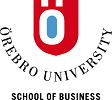No 2013:6: Design of a Combinatorial Bidding Market for Green Corridor Freight
Lars Hultkrantz () and Anders Lunander ()
Additional contact information
Lars Hultkrantz: Örebro University School of Business, Postal: Örebro University, School of Business, SE - 701 82 ÖREBRO, Sweden
Anders Lunander: Örebro University School of Business, Postal: Örebro University, School of Business, SE - 701 82 ÖREBRO, Sweden
Abstract: The Green Corridor (GC) initiative, pursued by the Swedish government and the European Commission, is intended to be a platform for innovation for long-distance freight transport aiming for more green and efficient solutions by enhanced use of economies of scale and development of new technologies. However, scale has to be traded off by two other aspects (i) freight transport time and reliability; and (ii) economies of scope. In this paper we present an already existing rail corridor case that highlights the need for tools (and/or markets) for making more efficient tradeoffs between economies of scale and scope in long-distance freight transport. This involves making very complex coordination of shipments that are differentiated with respect to origins-destinations, shipment size, time, time reliability requirements, regularity of shipments and involving both ex ante transport planning and real-time control. A market-based method that in principle could be used to solve such complex coordination is combinatorial auctioning and we briefly review a number of Swedish public tendering cases where this is done in practice. However, this raises questions on whether a fragmented vertically separated European rail industry can mobilize the “soft” market infrastructure needed to support a Green Corridor.
Keywords: Green Corridor; Sweden
JEL-codes: A10
19 pages, April 16, 2013
Price: 2013-04-15
Full text files
wp-6-2013.pdf
Questions (including download problems) about the papers in this series should be directed to ()
Report other problems with accessing this service to Sune Karlsson ().
RePEc:hhs:oruesi:2013_006This page generated on 2026-01-16 04:38:49.

